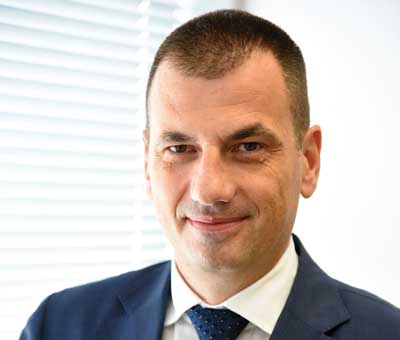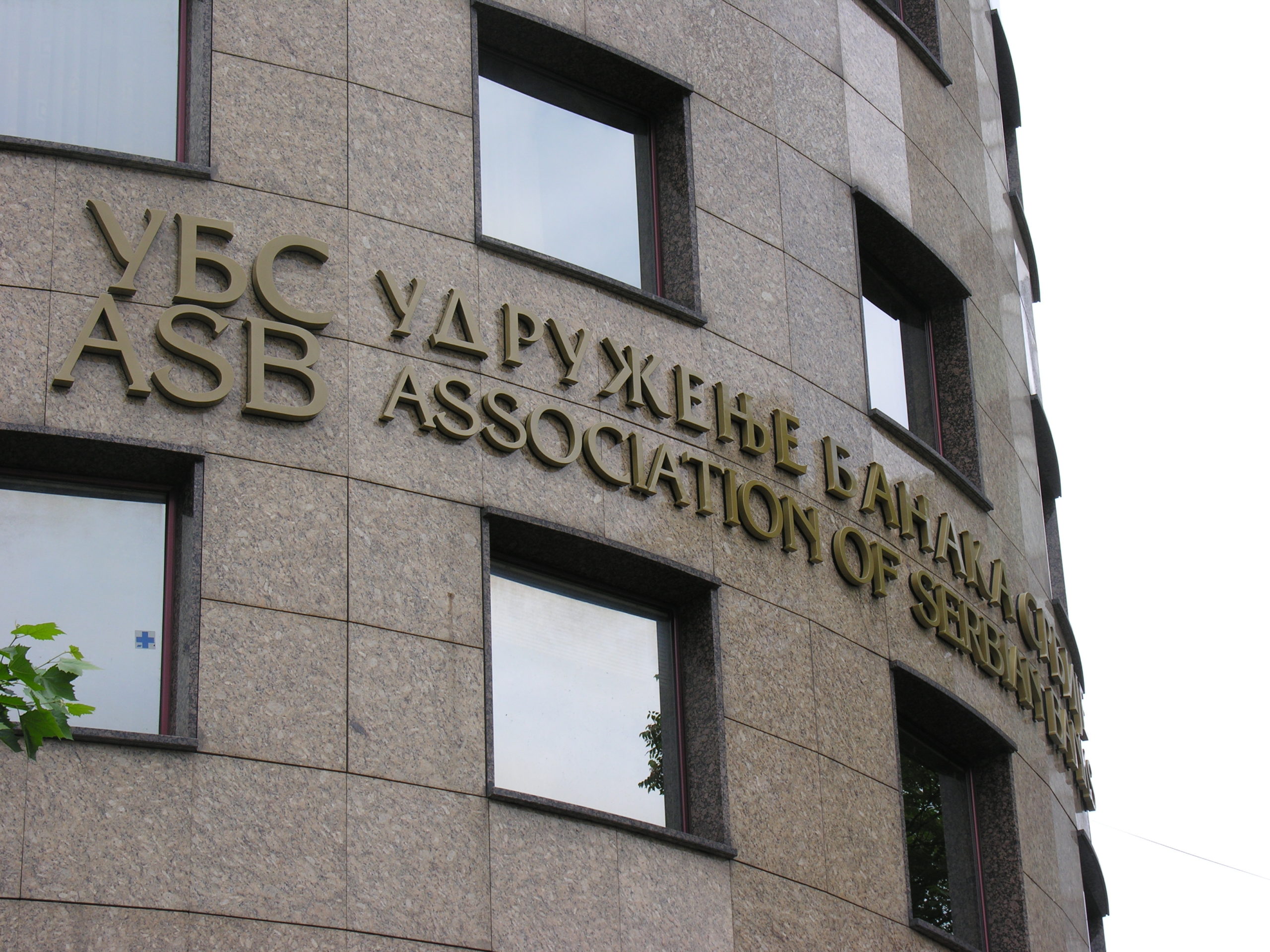Switzerland exudes a captivating blend of breathtaking landscapes and economic dynamism
Switzerland, a land renowned for its scenic landscapes and historical landmarks, has evolved into a global economic powerhouse, consistently holding the coveted top position on the Global Innovation Index as the world’s most innovative country. This innovative nation has a solid foundation with state-of-the-art infrastructure, attractive investment incentives, a highly skilled labor force, industry clusters, and world-leading academic institutions. The country’s ecosystem fosters research and development (R&D), attracting companies and individuals from around the world who strive to create groundbreaking technologies, pioneering solutions and expand operations.
One of Switzerland’s key strengths lies in its first-class business-friendly legal and regulatory framework, providing a stable and supportive environment. Moreover, Switzerland has prioritized infrastructure, with efficient transportation networks and advanced, ultra-modern facilities, offering ease of connectivity, and contributing to a high quality of life for its residents.
Switzerland’s dual education system further contributes to the country’s competitiveness, providing both vocational education and apprenticeships, ensuring a well-educated, productive workforce. Ricarda Demarmels, the CEO of Emmi, the leading manufacturer of high-quality dairy products in Switzerland stated, “What differentiates us from others is not only our top universities that are at the forefront of international research, but also our unique vocational training. This dual education combines classroom training with on-the-job training, with more than 200 apprenticeship professions recognized. Emmi offers a wide range of them and has this year a record number of 130 apprentices in Switzerland, from cheesemakers to computer science. In some ways it offers better opportunities than classical universities, by promoting lifelong learning, upskilling, and reskilling.”
Swiss academia plays a pivotal role in catalyzing innovation within the private sector. Institutions renowned for their world-class research in fields such as engineering, biotechnology, and computer science, help provide valuable expertise and talent to businesses. Through collaborative partnerships and knowledge exchange, academia and the private sector synergize, driving Switzerland’s reputation as a global innovation hub. This collaborative workforce is part of the reason Swiss industrial production per capita astonishingly beats both the USA and China’s rankings.
Economic and political stability are also hallmarks of Switzerland’s success, providing a footing for long-term investment and growth. Jan Atteslander, Member of the Executive Board and Head of the Department of International Relations at Economiesuisse, an umbrella organization for the Swiss business sector, stated, “Switzerland offers a high degree of legal stability, rule of law and international business-friendly conditions. It is important to note that Switzerland has always been like this. Switzerland has a rich history of openness and innovation, a quality that is highly esteemed by business people worldwide. It has led us to receive high rankings across many benchmarks, particularly amidst a global surge of protectionism. Switzerland holds a unique stance; we at Economiesuisse are committed to open markets, and this commitment is celebrated and exemplified by the recent abolition of import duties on industrial goods, a testament to our unwavering dedication to remaining open on the world stage.”
In addition to being open and secure, Switzerland offers a compelling proposition for investors seeking opportunities in pioneering fields, and those who equally value a well-balanced life. Alexandre Edelmann, Head of Presence Switzerland, the governmental communication agency of Switzerland abroad, noted, “We measure the perception of Switzerland in different countries, and Switzerland is viewed as stable and trusted, which is key as businesses tend to dislike instability. Another important aspect is the Swiss lifestyle. Innovation needs inspiration, and in large Swiss cities employees of multinationals can take inspiration from our country’s natural beauty. For instance, they can go swimming in our pristine rivers and lakes or have a walk over lunch breaks, something few residents of cities abroad have the possibility to do. It nurtures creativity and peace of mind.”
In light of increased global volatility, economic complexities, and geopolitical risks, entities continue to trust and cast a vote in favor of operating in Switzerland and engaging Swiss partners. In addition to being home to large multinationals, Switzerland serves as an exceptional base for globally minded startups and SMEs, offering a strategic location, stable business environment, and a well-established reputation for quality and precision. With a strong focus on R&D, Switzerland continues to lead the way in cutting-edge advancements across various sectors, providing value-added solutions that are solving global challenges.
Swiss-American Relations
Swiss-American relations are based on shared values and historically strong social and economic interests. The sister republics have close political similarities as federal unions of independent states with representative democracies. Switzerland acts as the gateway to Europe for many American companies, and in turn the USA is the largest export market for Swiss companies. This partnership extends to various sectors.

CEO
Swiss-American Chamber of Commerce
Martin Naville, CEO of the Swiss-American Chamber of Commerce, an organization that advocates for Swiss, American and multinational business interests, stated, “If we look at the development of bilateral trade, twenty years ago Switzerland exported the same to Italy, Germany, France, and the USA. Today we export more to the USA than Italy, France, UK, and Austria combined. The USA recently surpassed Germany as the leading Swiss export market, with 19.5% to the USA and 16.2% to Germany. The development and cooperation between the two countries has been massive. For instance, American FDI in Switzerland amounts to over USD 220 billion, and Swiss companies employ over 480,000 people in the USA.”
Naville continued to discuss the synergy between the two countries. He added, “A major topic today is sustainability, and Swiss companies are world champions in this field, giving them an added edge. They’re collaborating with American companies to help build a more sustainable and prosperous future.”
The Swiss Financial Center
Switzerland’s financial expertise reverberates globally, cementing its status as a premier financial hub. As a cornerstone of the Swiss economy, the financial sector contributes roughly 10% to the nation’s GDP. Switzerland is a linchpin in wealth management, asset management, insurance, and reinsurance, managing approximately a quarter of the world’s cross-border assets.

CEO
Swiss Bankers Association
Renowned for its meticulous precision, the Swiss banking sector exemplifies excellence, with a commitment to progressive financial services and unwavering adherence to rigorous regulatory standards. Roman Studer, CEO of the Swiss Bankers Association, the sector’s leading industry association with around 270 member institutions, stated, “The Swiss financial center has existed for centuries, with Swiss banks providing a wide range of services for foreign customers for over 200 years. The Swiss financial services industry has developed a strong position and remains a center of global importance despite the country’s relatively small size. This achievement is due not only to traditional success factors, but also to the fact that we are innovative and respond to and anticipate new global trends such as sustainable finance. The center might be best known for its banks, but its base is much broader, including insurance, reinsurance, fintech, and more.”
As sustainable finance is becoming increasingly important across the globe, the Swiss financial center is positioning itself as a leading sustainable investment hub. Switzerland has also embraced global benchmarks in tax regulation, anti-money laundering protocols, and enables the financial sector to provide high-quality, innovative products and services.
The Power of Cluster Dynamics
Switzerland hosts a diverse array of clusters ranging from the prominent life sciences and financial hubs to the precision engineering and cleantech clusters, each driving transformation in their respective fields. They represent dynamic ecosystems where innovation thrives with collaboration and synergies among businesses, research institutions, and governmental entities.
By working in close proximity to one another, the companies benefit from shared resources, knowledge exchange, and a culture of innovation, driving breakthroughs in various fields and vertically integrating technologies in biotech, medtech, fintech, cyber security, and industrial design. Emerging areas with the potential to develop into superclusters in Switzerland over the next decade include drones, robotics, software, cryptocurrencies, mobility and autonomous transportation, agrotech, foodtech, advanced manufacturing, and more.

CEO
Sonova
Arnd Kaldowski, CEO of Sonova, a Swiss-based medical group specializing in hearing care, mentioned, “Switzerland’s dynamic ecosystem has many positive elements for companies like Sonova on the medical device side. About 1.3% of the Swiss workforce is working for medical device related companies, which is two and a half times larger than the average Western country. Innovation and engineering thrive in Switzerland, in part due to a strong talent pool thanks to well-renowned Swiss universities, spearheaded by ETH and EPFL. Their focus on microelectronics, software, research, and talent cultivation, has been especially vital in our own field of hearing aids. We tap into universities, active startups, and innovative small companies, not just from a talent perspective, but also for collaborations with technology and innovation. Switzerland’s distinguished talent pool is robust, and a cornerstone of Sonova’s success.”

CEO
Syngenta
Switzerland’s innovative clusters garner global attention, with leaders from various industries echoing sentiments of its one-of-a-kind business environment. Jeff Rowe, CEO of Swiss headquartered Syngenta Group, a world leading agritech company, stated, “As an American who is living in Switzerland, I have a fairly unique perspective regarding what drives Switzerland’s success as an innovation nation. It starts with a central focus on creating a business environment that is productive and efficient. As a global agritech company, we strive to solve localized problems with a global mindset. Farmers from around the world face various issues that reflect different environmental concerns, farming practices, and even economic situations. For companies like Syngenta, our ability to innovate enables us to deliver solutions to evolving farming challenges. Switzerland is a key R&D and manufacturing hub globally for us. It’s not difficult to convince top scientists from around the world to relocate to Switzerland. We’ve found they’re eager to live and work here.”
Tourism Triumphs
Switzerland’s tourism industry plays a pivotal role in its economy, attracting millions of visitors annually to its breathtaking landscapes, charming cities, and cultural treasures. Revenue generated from tourism supports local businesses, sustains jobs, and contributes to infrastructure development. Beyond economic benefits, tourism promotes cultural exchange, fosters understanding between nations, and preserves Switzerland’s natural and historical heritage.

CEO
SWISS
Dieter Vranckx, CEO of Swiss International Air Lines, the leading airline of Switzerland, added, “Switzerland is a small landlocked country so a lot is built around air travel. It’s important to connect the country with the rest of the world for both business and leisure purposes. SWISS, Switzerland’s leading air carrier, is investing heavily in expanding its network, not only for passengers, but also for cargo worldwide. We currently serve 114 destinations, and have expanded our intercontinental offering this year with new flights to Washington D.C., Toronto and Seoul, which represents a milestone for SWISS. Our purpose is to connect Switzerland sustainably with the world, and ensure we provide premium solutions for our travelers.”
Today, Swiss tourism thrives, with the United States serving as the third largest source for overnight stays after local Swiss and German tourists. The number of American tourists visiting Switzerland is at an all-time high, with statistics showcasing a sharp increase in American visitors and a doubling in numbers over the last 15 years.

CEO
Luzern Tourism
Marcel Perren, CEO of Luzern Tourism, the organization dedicated to positioning first-class services for the Lucerne-Lake Lucerne Region, stated, “The unparalleled quality of life enjoyed by residents in Switzerland and Lucerne in particular is complemented by the country’s spectacular tourism offerings, especially in the pre-Alpine regions. The United States has consistently been a crucial market for Swiss tourism, reflecting a longstanding appreciation for the country’s diverse attractions. With post-pandemic tourism evolving, there are notable investments underway to enhance the region’s appeal to visitors. There is also a vision for widening the geographical impact of tourism. As a global destination, we’re not only offering unforgettable experiences, but also advocating for sustainable and responsible tourism practices.”
Residing amidst a backdrop of unparalleled beauty, thriving innovation, and a robust economy, it comes as no surprise that Switzerland consistently ranks among the world’s happiest nations. This harmonious mix of natural grandeur and economic prosperity fosters a unique sense of well-being and contentment among its residents. Furthermore, Switzerland’s commitment to sustainability initiatives underscores its unwavering dedication to enhancing the lives of its citizens and preserving its remarkable legacy for generations to come.

























